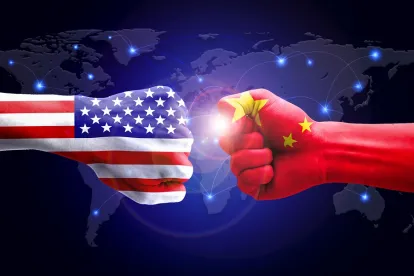Potentially impacting the reach of US antitrust enforcement, the Court will determine standards to apply in considering a foreign government's legal statement concerning the interpretation of its domestic law in price fixing and other cases.
The US Supreme Court agreed on January 12 to review the decision in a case involving alleged price fixing of vitamin C to consider the degree of deference owed to foreign governments’ interpretations of their own laws in US legal proceedings. The Court’s decision to review this case signals potential changes in the manner in which foreign laws will be interpreted in international antitrust cases and may create more scope for US enforcement against international cartels.
Background
District Court and Jury Trial
This case stems from a series of lawsuits that were filed in 2005 against four Chinese manufacturers of vitamin C imported into the United States, alleging that the Chinese companies had colluded on export prices and volumes in violation of Section 1 of the Sherman Act. The defendants argued that Chinese laws and regulations required them to coordinate regarding their export prices and volumes. China’s Ministry of Commerce (MOFCOM) intervened in the case, submitting an amicus brief providing an interpretation of Chinese law that supported the defendants’ position. However, the district court rejected MOFCOM’s interpretation of Chinese law, concluding based on other legal sources that Chinese law did not require the collusion alleged by plaintiffs. The case proceeded to trial, and the jury awarded $147 million in damages to the plaintiffs.
Appeal: Second Circuit
Defendants appealed to the US Court of Appeals for the Second Circuit, which reversed the judgment in September 2016. The Second Circuit held that the district court abused its discretion in not dismissing the case on international comity grounds. It faulted the district court for failing to give proper consideration to MOFCOM’s formal statement, on behalf of the Chinese government, “that Chinese law required Defendants to set prices and reduce quantities of vitamin C sold abroad.”[1] As the Second Circuit held,“[i]f deference by any measure is to mean anything, it must mean that a US court not embark on a challenge to a foreign government’s official representation to the court regarding its laws or regulations, even if that representation is inconsistent with how those laws might be interpreted under the principles of our legal system.” On the basis of deference, the Second Circuit held “that Defendants were required by Chinese law to set prices and reduce quantities of vitamin C sold abroad and doing so posed a true conflict between China's regulatory scheme and U.S. antitrust laws such that this conflict in Defendants' legal obligations, balanced with other factors, mandates dismissal of Plaintiffs' suit on international comity grounds.”
Supreme Court
Plaintiffs sought review of the Second Circuit’s decision by the US Supreme Court. They presented three questions for review, including the degree of deference US courts are required to provide to foreign governments’ statements interpreting their laws. The Second Circuit’s opinion, which required a near-conclusive presumption of validity for such statements, was at odds with the standards applied in other circuits, according to the plaintiffs. On June 26, 2017, the Supreme Court invited the US Solicitor General (SG) to express the views of the United States regarding plaintiffs’ petition for a writ of certiorari.
SG’s View and Implications for Enforcement
On November 15, 2017, the SG filed a brief responding to the Supreme Court’s request and criticizing the Second Circuit for giving “inadequate weight to the interests of the US victims of the alleged price fixing cartel and to the interests of the United States in enforcement of its antitrust laws,” while giving “too much weight to China’s objections to this suit.” The brief, while recognizing the importance of giving “substantial weight” to foreign governments’ opinions/statements, argued that federal courts should not “treat a foreign government’s characterizations as conclusive in all circumstances.”
On January 12, the Supreme Court granted review on this issue:
Whether a court may exercise independent review of an appearing foreign sovereign's
interpretation of its domestic law (as held by the Fifth, Sixth, Seventh, Eleventh, and D.C. Circuits), or whether a court is "bound to defer" to a foreign government's legal statement, as a matter of international comity, whenever the foreign government appears before the court (as held by the opinion below in accord with the Ninth Circuit).[2]
Oral argument has not yet been scheduled.
Initial Observations and Ramifications
While the outcome of the case remains to be seen, its ramifications will be significant not only in antitrust cases but also others involving the interpretation and application of foreign law. The decision is expected to resolve a pending split in the circuits on what consideration should be given to foreign government interpretations of their domestic law.
If the Supreme Court agrees with the Second Circuit’s standard, greater weight will be given to filings by foreign governments in cases involving collusion. A standard based on or similar to the Second Circuit’s ruling would invite motions to dismiss similarly situated cases by giving primary deference to the foreign government formal statements.
Alternatively, if the Supreme Court rejects the Second Circuit standard, lower courts will have more flexibility in deciding the weight to be given to foreign government statements about their domestic law along with other relevant evidence and factors. Further, when a foreign government directly participates in US court proceedings, as is often the case, by providing a formal interpretation of its law or regulations, US courts may not as readily accept their statements as conclusive. This may in turn affect how the US government’s interpretations of US laws or regulations are treated in foreign court proceedings as foreign courts may decide to show them less deference in light of the Supreme Court’s decision and not decide to treat them as conclusive.
Irrespective of the Supreme Court’s decision, the new developments present significant implications for foreign entities both in civil and criminal actions. The Supreme Court’s refusal to hear the case would have left the existing circuit split in place, resulting in the application of different standards depending on where the case was filed.
The Supreme Court’s decision may impact the potential reach of US antitrust law enforcement in international cases, which frequently require consideration of foreign laws and regulations. For example, the US Department of Justice’s pending investigation into Chinese air cargo companies may be impacted along with other contemplated investigations. The MOFCOM’s unprecedented participation in US antitrust legal proceedings also signifies the Chinese government’s commitment to maintain its position on the issue of international comity with respect to the interpretation of its domestic laws. And the Supreme Court’s decision in this case will also likely impact the ongoing dialogue between the United States and China in their efforts to find a common ground to foster the bilateral collaboration between the two governments on antitrust law enforcement.
[1] In re Vitamin C Antitrust Litigation, 837 F.3d 175, 179 (2d Cir. 2016).
[2] Question Presented, Animal Science Products Inc. v. HeBei Welcome Pharmaceutical Co. Ltd., No. 16-1220, available here.



 />i
/>i
